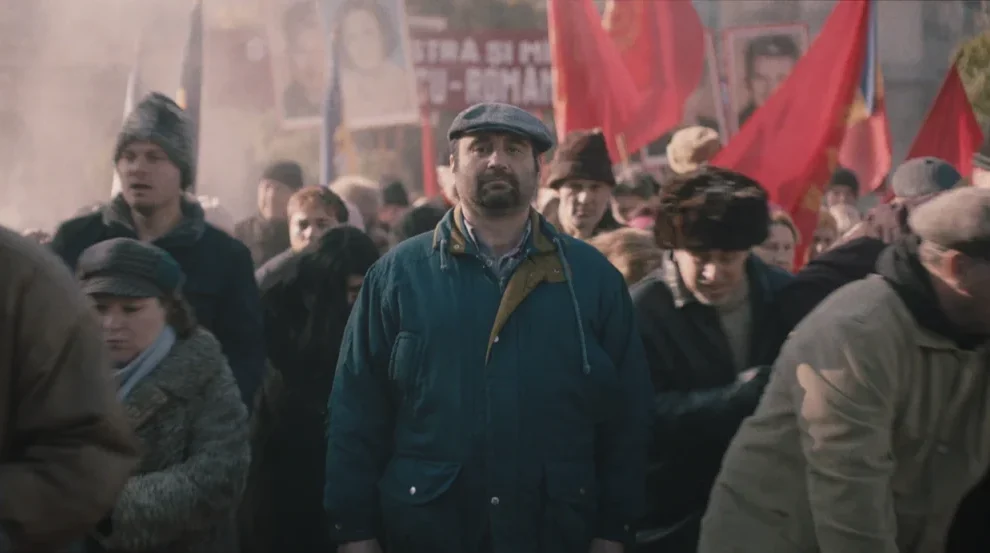The New Year That Never Came (Anul Nou care n-a fost), directed by Bogdan Mureșanu
Just days before the end of 1989, the Romanian capital Bucharest is awash with rumour of awful events said to have taken place in the western city of Timișoara a few days previously, where a protest against Romania’s dictator Nicolae Ceaușescu is believed to have ended in a massacre.
At Romanian television meanwhile, panic. The star of its pre-recorded New Year’s programming has defected. There’s no way that the show, which includes a homage to Romania’s dictator Nicolae Ceaușescu, can be broadcast in its current format with the defector front and centre.
The show’s director (whose son is planning his own defection, across the Danube to Yugoslavia) launches a search for a last-minute replacement, but the only available candidate—desperate for news of a friend living in Timișoara—is reluctant to take part, despite knowing that refusal would mean professional suicide.
Elsewhere, a once devoted communist faces losing her home in the demolitions that swept central Bucharest in the late 1980s. Her son, an officer in Romania’s secret police (‘Not a very good one, clearly, else they wouldn’t be bulldozing my house’) tries to reassure her that moving to an apartment in a new block is for the best.
Helping her move is a factory worker whose own son writes to Father Frost (Father Christmas was persona non grata in communist Romania) asking for a train, a new bag for his mother, and for his father ‘the death of Uncle Nicu’ [Ceaușescu].
In a clever, believable, if at times slow film, director Bogdan Mureșanu brings together the stories of these six very different individuals to create a narrative that takes place in a 24-hour period from the morning of December 21, 1989—the last full day of Ceaușescu’s more than two decades in office.
Life in communist Romania is depicted as bleak (one scene in a chemist is particularly accurate) although there has been some criticism from those who lived through the period that it’s not depicted as being bleak enough.
Certainly, the omnipresent fear of the secret police is there, less so the depravation and shortages that afflicted daily life.
The film can also be pulled up for its presumed knowledge of the demolitions, of events in Timișoara, of the dangers of crossing the Danube, of Ceaușescu’s cult of personality. While Romanian domestic audiences will be familiar such themes, foreigners may not.
These are minutiae, however. At once terrifying and at times laugh out loud funny this is the first Romanian film to properly tackle the subject of Romania’s revolution. Not that it tells the story of that revolution—it instead tells the stories of six people whose lives are about to be changed forever, and is all the better for it.
The New Year That Never Came can be watched on Netflix.
At Emerging Europe, we use an integrated approach centred around market intelligence to help organisations understand trends and strategically position themselves for success.
Learn how our solutions can help you thrive in the region:
Company and Services Overview | Strategic Advantage.

